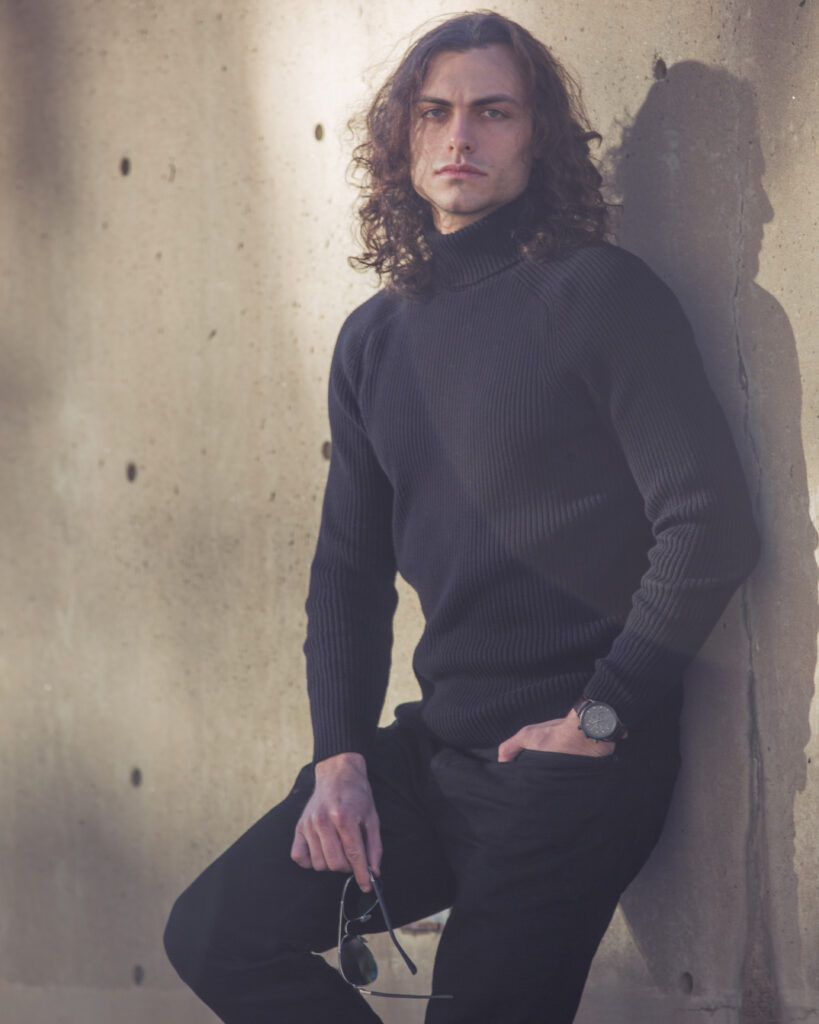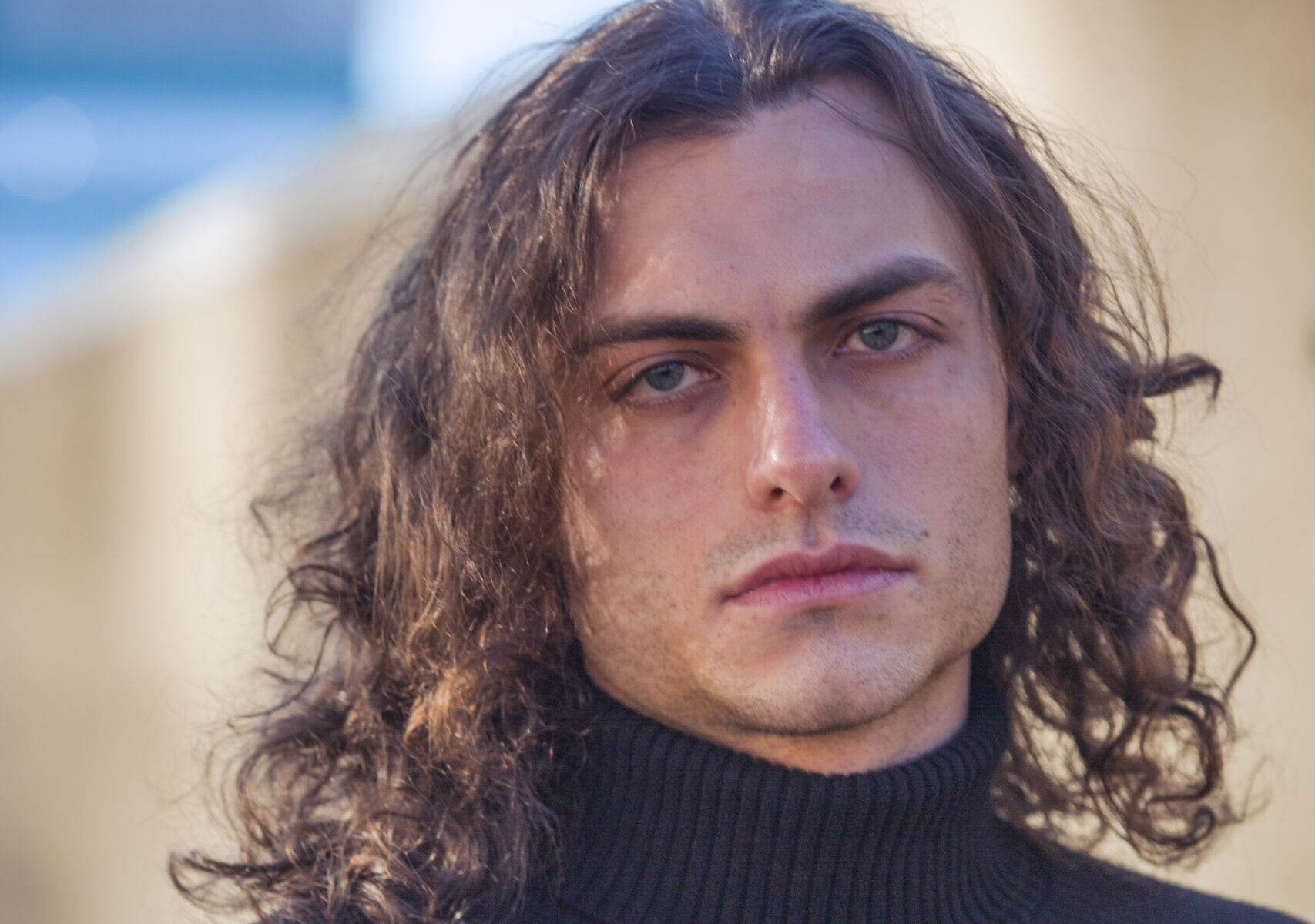When I learned I’d be interviewing Tyler Raymond – described only to me as a Marine and current journalism student – about his 57 days in Ukraine, I expected to find myself across from the repetitive image of a bearded politically former military far-right activist, overflowing in opinions I’d have to tight lip my way through. However, the egregious caricature my paranoia concocted could not have been further from the long-haired, leather-briefcase-carrying model (no, really, he’s a signed model.) who would later tell me he wishes his name was James because, “no one can pronounce ‘Tyler.’ When I travel, everybody knows how to pronounce James.”
As far as first impressions go, the 26-year-old Mississippi native harbors an enviable amount of license. Eight years have passed since he joined the Marine Corps as an infantryman and left his hometown of Gulfport. In that time, he has trained ally militaries in Eastern Europe, deployed to Afghanistan as a private military contractor, traveled through Peruvian Amazonia – “I went there to try ayahuasca, for the story” – climbed the Andes, spent two months as a deckhand on an Alaskan fishing boat, and earlier this year, he volunteered in the Ukrainian war effort.
Tyler’s youthful, Kerouacian predisposition to seek and lunge at any opportunity that offers the chance for a new adventure carries an undercurrent of orphan malcontent, too ancient to stabilize itself within the 26-year-old it vexes.
There is a matter of fact marionetting to what Tyler allows himself to confess – a tried-and-true protective maneuver that serves as conversational guiderails, positioning him in line with indisputable facts and related necessary evils. His opinions are unimposing, and his tone is an energetic modulation without so much as a heavy A to corroborate his southern origins. His storytelling is focused on the intricacies of being a Marine, and the pride he carries as a former infantryman (the Eagle, Globe and Anchor he was given after graduating bootcamp in 2015 has a permanent spot above his ever-migrating fireplace).
Almost as if he can sense my preconceived image of who I’d be speaking to, Tyler makes it a point to tell me, “I am not the super American patriotic man. I’m not saying I hate this country. I still think we have a few things we can work on, but I think we’re privileged to be able to have the right to work on those things.” In illustrating his point, he references the ongoing murders of Iranian protesters who – as Tyler puts it – are only demanding basic freedoms.
He begins to tell me about how enthusiastic people around him were – people who were “otherwise big hippies” – when they learned he planned to volunteer in the early days of the Ukrainian-Russian war. “You know, it’s interesting,” he muses, pulling his hair (which he refuses to cut) from his face. “People supported the hell out of me going over there to fight and potentially kill. I wonder what makes people say that, like, ‘this is good’ and being okay participating in this versus…really anything else of the same caliber. I’m not saying it’s bad to kill people in war,” he continues, glancing up at me, “but I’m not saying it’s good, either.”
“You know,” says Tyler, gradually becoming more Tyler the Person – and less Tyler the Marine– as our conversation continues, “I went to Ukraine because it was the right thing to do. That’s the only reason I have. It was the right thing to do.”
I ask him what else he’s done with only this moral sense as justification for action, and when he tells me he tries to live his life in such a way that he’s always acting on the right thing, I catch a veneer of faithlessness creeping behind his ambition – the kind that suggests a conflict of the internal sort; a budding metamorphosis that hasn’t yet communicated to its host that the only way out is through. There are no missiles or rocket launchers conflict like this one – one of the conscience – and I can’t help but wonder if Tyler has begun the necessary exploration into enemy lines.
I ask Tyler what’s next for him and watch him immediately perk up with the opportunity to talk about the future. It’s kind of his thing.
“You said you ‘still have loose ends to tie up in Ukraine.’ Are you going back?”
“If I do, it’s as a humanitarian only. I don’t want to go over there fighting and end up dying. I’m working toward a good life now. I want to keep traveling, sure, but I don’t need a war zone to go do crazy stuff around the globe and tell stories about it. So that’s what’s next, you know? Get my degree, keep traveling, and write about all the places I go to,” Tyler says, calmer now than he’d been at any point earlier in the interview. “Just be a journalist and tell stories about places people wouldn’t normally go to or experience.”
He is searching for an answer to fill the gap between doing the right thing and living with the consequences that occupy the underbelly of what exists on the other side of that intoxicating honor code. Much like the subject of his favorite novel, All Quiet on the Western Front, Tyler is a young man in the throes of his own evolution – holding in one hand his fragmented patriotism, and with the other, he is reaching beyond civilian boundaries, hungrily grabbing at an ideal only he can define through empirical story telling.
This story telling, Tyler tells me as I close my notebook and stop the recording, is how he plans to keep fighting.


